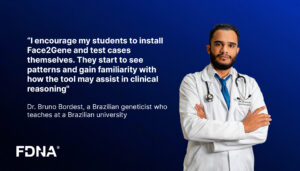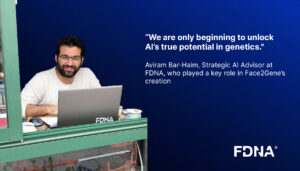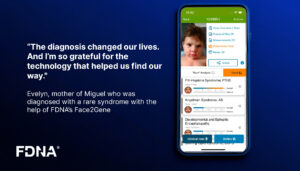November 25, 2019
“the Boston-based FDNA published a paper in January in Nature Medicine detailing how it had built a smartphone app called Face2Gene that had been trained on masses of images to recognize people with rare genetic disorders.”
The article discusses FDNA’s pioneering efforts to harness AI to diagnose rare genetic diseases. FDNA utilizes advanced facial recognition technology and machine learning algorithms to analyze patients’ facial features, significantly enhancing diagnostic accuracy and speed. This AI-driven approach allows healthcare providers to identify rare genetic disorders more efficiently, facilitating earlier and more effective interventions. By leveraging AI to expedite the diagnosis of these conditions, FDNA is revolutionizing the medical landscape, improving patient outcomes, and making it easier to detect and manage rare genetic diseases. The article emphasizes the transformative potential of AI in modern healthcare diagnostics.


